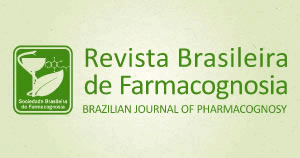The herbal drugs constitute an alternative or complementary therapy for the health needs and its use has been growing in the aged population of many countries. However, herbal drugs present important adverse effects and drug interactions and should not be indiscriminately used. The aim of this study was to investigate the profile of herbal drug use by elderly and pensioner residents of Belo Horizonte, Brazil. Eight hundred and eighty-one retirees were randomly selected from the Instituto Nacional do Seguro Social (INSS) database for in-home interview. The prevalence of herbal drugs use, and possible drug interactions were investigated. Results showed that 667 (80.3%) of selected individuals were interviewed. Seventy-one subjects (10.6%) used herbal drugs in the past 15 days, mainly those prepared from ginkgo (41.8%), horse chestnut (12.3%), and soya extract (8.2%). More than 60% of the herbal drugs were acquired in compounding pharmacies. Almost 45% of the herbal drug users were exposed to at least one potential herb-drug interaction, such as between ginkgo and thiazide diuretics (14) and antithrombotic/anticoagulants (8). Strategies to provide orientation for the rational use of these products in elderly people are necessary, since they are the population most exposed to polypharmacy and in consequence, most vulnerable to inappropriate uses of medications.
Elderly; herbal drugs; drug utilization; drug-herb interactions


